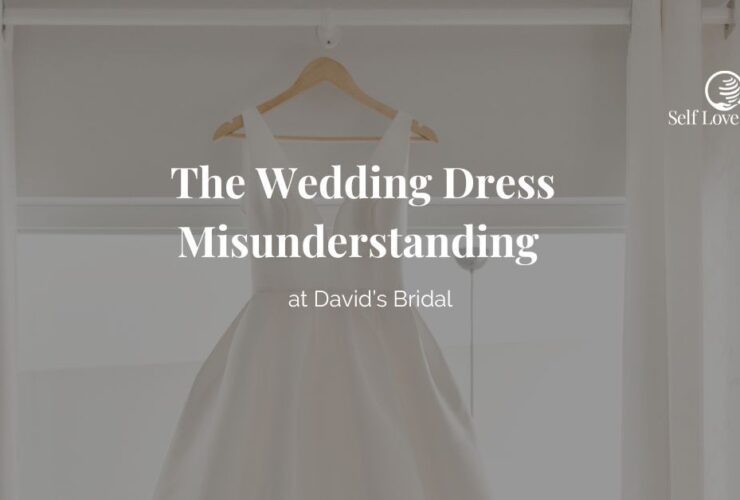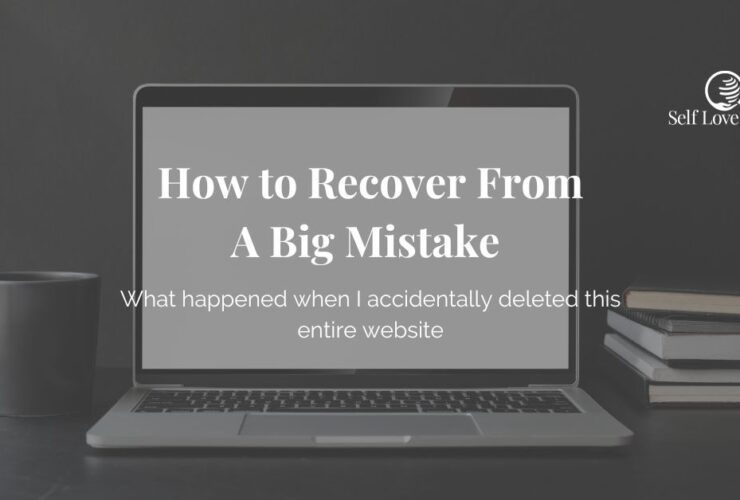How to Add True Joy to Your Life
I was having a conversation with my partner (Bradley) about the importance of being “present in the moment”, when I realized being “present” is something I fundamentally struggle with.
As an over-involved and overcommitted extrovert, I’ve spent years constantly thinking about the next thing on my to-do list, planning for my future, preparing for what is coming, rarely with a real “break” in sight, and rarely enjoying just being.
This vulnerable conversation with my partner led me to take a good hard look at my behavior. Then I realized: my unwillingness to be present in the moment has actively blocked a lot of joy out of my life.
I don’t want to see you make the same mistake. So in this post, I’m providing a roadmap to welcoming more true joy into your life.
Joy Doesn’t Take Place in The Future
Thinking about the future is a necessary part of achieving large goals. However, there is such a thing as thinking about the future too often.
As we think about things that will happen in the future (whether it’s future events or things we are planning to do), we find ourselves feeling some variation of excitement, hope, stress, or fear. All of which can be useful emotions, but they are not, by themselves, a recipe for joy.
Every second we spend placing ourselves in the future (or fearing something that has yet to come), we take ourselves away from the positive feelings that are ingredients of joy: contentment, gratitude, peace, love, fulfillment, etc. These “ingredients” (and I’m certain there are more that I haven’t listed here) can only ever take place in the present moment.
So if you are unable to bring yourself and your mind fully into the present moment, then you are inherently also unable to experience the fullest forms of joy.
I fell victim to this. I got so wrapped up in wanting to achieve a goal that I disallowed myself from enjoying the present moment and habitually blocked opportunities to bring true joy into my life.
And what led me to do this? The answer is simple: fear.
Fear Will Tell You Whatever You Give is Not Enough
Throughout highschool and college, I worked my ass off with my biggest goals in mind. I gave everything I had in the name of my clear “vision” for my future, and I was so proud of it. Besides, American culture leads us to believe that if we work hard, we will be successful, and therefore happy. So I wanted to be the hardest working, most successful, and happiest person I knew.
Meanwhile, people I trusted were continually reminding me that I needed to take breaks, that I needed to “lighten up,” or “have some fun every once in a while.”

I remember my best friend dragging me to movie theaters so we could have an evening out together. I never wanted to go because I always had “so much to do.” And on the car rides to the theater, I would think about all the things I needed to do for school and my involvements. But once each movie started, I was able to leave it all behind momentarily, be present, and enjoy the experience. Afterwards, I always thanked her for insisting I went with her.
I remember wondering why it was genuinely difficult to convince myself to go to the movies (or do anything non-school/work related).
In retrospect, this resistance was the result of a firm belief. I believed that if I chose to sacrifice my time and energy to progress and progress only, I would be rewarded with success and my dream career (and therefore ultimate happiness).
In other words, I feared that if I wasn’t willing to sacrifice enough of my time and energy, then I was metaphorically shooting my chances of ultimate happiness in the chest.
It was ironic because my fear of losing my chances at ultimate happiness was the exact thing that was preventing me from experiencing pure joy in my everyday life.
What was really killing my chances of ultimate happiness was my inability to be present with myself and the people around me.
How to Recognize Fake Sources of Joy
When I finally asked myself “What do you enjoy?”, I noticed something unsettling: A lot of the things I thought I enjoyed were means to other ends. Every time I tried to answer the question, I would list things that I liked, not because I liked the act or the process of doing them, but because they helped me achieve other goals.
I liked the things/activities that made me feel smart, successful, pretty, charitable, selfless, etc. simply because they made me feel better about myself, not because I loved those things/activities as they were.
But just because something makes us feel good, doesn’t mean we truly enjoy them. The things that bring us a pure form of joy are things that we love for the sake of themselves.
When I assessed the things I thought I enjoyed, I realized there were few things I enjoyed “for their own sake.”
For example, I like creating lists. I would even go as far as saying I enjoy creating lists. But making lists does not, by itself, bring me a true or deep sense of joy. Making lists seems enjoyable because it makes me feel like I’ve accomplished something.

But in reality, I don’t deeply enjoy writing lists, I just like feeling accomplished, and writing lists has always been an easy way to get the feeling I wanted to have.
It seems like we tend to describe fake sources of joy only in terms of how it makes us feel, whereas we tend to describe true sources of joy in terms of “it just is.”
For example, a few things I now know I truly and deeply enjoy are petting dogs, playing board games, and hammocking. If you asked me why I enjoy those things, I would say “Because dogs are cute and soft,” or “Board games are fun,” or “Hammocking is peaceful.” I enjoy those things because I perceive those experiences/activities to be inherently good, not just because of the way they make me feel, and not as a means to another end, but as ends in and of themselves.
Another fake source of joy is anything that has inherent consequences that subtract from the joy of the experience.
If there are negative consequences following the seemingly “joyful” activity, then it’s not the truest form of joy.
I’d say you’ll know if something qualifies as a negative consequence if it…
- Is a direct result of the joyful experience (i.e. the result is an inherent part of the experience)
- Includes a negative feeling that cancels out the joy (i.e. guilt, regret, self-loathing, pain, restriction, etc.)
An example of a negative consequence might be a hangover following a night of binge drinking that probably was fun at some point, but you can’t remember most of it. Another negative consequence would be feeling sick for hours after eating more cheese breadsticks than your stomach is meant to hold (yes, I’m speaking from experience).
Sure, it’s fun in the moment, but feeling like crap leads you to think “maybe I shouldn’t have done that.”
According to Harvard sociologist and life coach, Martha Beck, “The biggest danger you face when dealing with happiness is mistaking joy substitutes for the real thing…phony joy takes you to a place of ecstasy, then drops you off the edge of a cliff. This is true not only of chemical euphoria but of any mood-altering substance or activity.” (For more about joy from Martha Beck, check out her book Finding Your Own North Star)
However, I wouldn’t automatically label anything negative as a negative consequence. For example, sore muscles from physical activity: although soreness might seem like a negative consequence, it might not be, depending on how that soreness makes us feel. Plenty of people experience soreness after doing something physically demanding that they enjoy. Even though the soreness hurts, it makes them feel good because it reminds them of all the fun they had. If something you enjoy is followed by a result that feels slightly bad but is still overall net-positive, then don’t automatically dismiss that joy as fake.
What Does True Joy Look Like?
Knowing how to recognize fake sources of joy doesn’t mean we know how to identify the true ones. I’ve already argued that the things we truly-deeply-completely enjoy do not simply equate to things that make us feel good; that joyful experiences are things we enjoy for their own sake. But true joys are much deeper than just that.
I believe there is a firm distinctness about true sources of joy. So I researched how many other people define joyful experiences and started conversations about what true joy feels like.
I’ve compiled the answers into a non-exhaustive list in hopes that it will help you identify what sources of joy are true for YOU. An activity/experience does not have to match up with every item on this list. But if it matches up with several, then you know you’ve found something that makes you truly joyful.
True sources of joy tend to…
- Capture our attention
- Ex. I enjoy petting dogs, so when I see a dog, my attention tends to become focused on the dog momentarily. I usually will drop whatever I’m doing to pet the dog.
- Quiet our cluttered thoughts.
- This could mean it quiets our mind (For example, staring at a campfire, meditating, or marveling at something beautiful). It could also mean it causes us to focus intently on something (like solving puzzles, playing chess, or playing sports).
- Offer a feeling of contentment
- This might feel like whatever you are doing in the moment is enough.
- Bring us back to our childhood (Or in other words, satisfy our inner child)
- Ex. My brother has always enjoyed Pixar movies. For him, music soundtracks from Pixar movies always ignite a special kind of happiness in him. For me, some things that satisfy my inner child are swings (yes, playground swings) and skipping rocks on a beach.
- Make us feel alive
- Give us a sudden and irresistible urge to smile
- Help us temporarily escape our fears (including various forms of anxieties)
- Involve feelings that are hard to describe
- You might not know how to describe the feeling, but the feeling without the description is enough. For example, Some parents say holding their babies for the first time was a moment of pure joy, but they find themselves at a loss for words when trying to describe it further.
Can you think of a few things that bring you true joy?
Be Picky When Naming What Brings You Joy
When searching for what you truly enjoy, you should be picky.

If you say you enjoy most things, it’s kind of like saying “I like all different kinds of music” when someone is trying to get to know your music taste. While it is possible that a person could like all kinds of music, most people do not.
Usually when someone says “I like all kinds of music,” they’re scared to say what they really like. They’re scared that the person they are speaking to will disagree or tell them their interests are wrong. They’d rather give a general answer than get shut down.
But saying “I like all kinds of music” fails to give other people much information to go off of and therefore prevents further exchange to help you explore and refine your own interests.
For both music and joy, saying you like everything implies you don’t actually enjoy anything in particular. It prevents us from thinking more deeply about what really feels like butterflies in our soul.
How to Add Joy to Your Life.
Once you figure out what you truly enjoy, you can get creative with ways to add more joy into your life.
One way is to specifically schedule time to do the things you enjoy.
I know it sounds simple, but a lot of people have a hard time doing this. They believe they don’t have time to add anything into their schedule (see my post about how we always have time for what we prioritize). But scheduling in more joyful activities means you have to carve out time from other things.
For me, this meant taking time away from social media and re-allocating it to reading books and playing card games. Soon, I plan to carve out time specifically for some good ol’ fashioned mangas (japanese graphic novels).
If something you enjoy can be added to a daily routine, then commit to fitting it in more often. Maybe even designate a specific time of day for your joyful activity.
If it’s something that isn’t easy to do every day or every week (say, water skiing when you don’t live on a lake), then schedule the kind of vacation or weekend trip that allows you to have that joy.
Another way to add joy to your life is to find creative ways to combine your joys with other tasks you need to complete in your life.
If listening to music (or a specific band) brings you joy, then put it on during car rides, chores, or while you’re getting ready in the morning.
If you really enjoy making and baking bread, maybe intentionally “forget” to buy bread at the grocery store and then plan to make bread baking a part of today’s cooking process.
A third way to add more joy to life is to make the things you enjoy play an active role in achieving your goals—as much as possible.
For example, I enjoy writing (yes, I do enjoy writing for the sake of writing, I’m sure that repulses many of you). But I have a hard time setting aside time for writing unless it is contributing something specific in my life. So when I looked at my dream career (life coaching) and realized a lot of life coaches run blogs, I saw an opportunity to both do something I love and work towards a big goal of mine.
I don’t enjoy publishing blog posts for the sake of publishing blog posts, but I do enjoy writing for the sake of writing. So I’ve structured writing into my career development efforts (and I’m having a blast doing it).
Obviously not all joys are as professionally useful as writing, but if you can find a way to use something you enjoy to help you make progress towards something you want, it’s absolutely worth it.
Finally, Let Joy Wash Over You
The next time you have some alone time, or are with someone you love, try to shut out the chatter in your mind by seeking out something you truly and deeply enjoy. When you do, let the feeling wash over you. Let yourself be in the present moment, and most importantly, enjoy it. Don’t let your fear tell you it’s a waste of time. It’s not. In fact, it’s the key to making everything else bearable.
Did this post resonate with you? If so, I’d love to hear from you! Leave a comment or send me a message to share your thoughts. For more uplifting content, check out some other posts on my blog, follow me on instagram @morgan_barbret, or sign up for the Self Love Atlas Newsletter!
Much Love,
Morgan Rita Barbret






Enjoyed this weeks blog. Your section about true sources of joy was very thought provoking. Petting a dog and playing cards are an activity that causes distractions and help relieve anxiety, while hammocking (being inactive) brings one a feeling of contentment, and stress reduction (imho).
Without having documentation to back up my words, I have always heard
1) a little stress is good and a motivator. BUT,
2) supposedly, studies have shown a overall less stressful lifestyle brings positive physical health benefits and leads to a longer life.
Yes! I’ve found that the different forms of joy for me tend to serve different purposes. And while I am absolutely the kind of person to add stress/put pressure on myself to help me get motivated, it’s probably not the best for my health to do that all the time.
I think it’s important to try to strike a balance between the two so that we can live both productive and joyful lives.